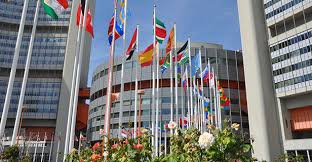The United Nations Special Rapporteur for Extrajudicial and Arbitrary Executions, Agnes Callamard, has expressed concern over the high rate of extra-judicial killings in the country.
The UN envoy, whose official visit to Nigeria ends today, is in the country to examine situations of violations of the right to life by state and non-state actors; the federal, state security strategy and the responses at federal and state levels to allegations of arbitrary deprivation of life. She arrived the country August 19, 2019.
According to Callamard, the “overall situation that I encountered in Nigeria gives rise to extreme concern.
”By many measures, the federal authorities and the international partners are presiding over an injustice-pressure cooker. Some of the specific contexts I examined are simmering.”
“The warning signs are flashing bright red: increased numbers of attacks and killings over the last five years, with a few notable exceptions; increased criminality and spreading insecurity; widespread failure by the federal authorities to investigate and hold perpetrators to account, even for mass killing.
“A lack of public trust and confidence in the judicial institutions and state institutions more generally; high levels of resentment and grievances within and between communities; toxic ethno-religious narratives and ‘extremist’ ideologies, characterised by dehumanization of the ‘others’ and denial of the legitimacy of the others’ claims; a generalised break down of the rule of law, with particularly acute consequences for the most vulnerable and impoverished populations of Nigeria.”
She observed that a weak rule of law and its brewing crisis were intertwined with problems of a nation-wide population explosion and increased rates of extreme poverty which characterises the reality for roughly half of the Nigerian population.
Callamard stated further: ”This is exacerbated by the spreading environmental degradation and desertification evident throughout West Africa.
”It is also fed by the increasing proliferation of small and military-grade weapons made readily available as a result of regional instability originating, according to some reports, from as far north as the Libyan conflicts.
“These nation-wide and broader regional pressures applied against Nigeria’s diverse eco-political-economic systems are producing localised systems and country-wide patterns of violence, many of which are seemingly spinning out of control.”
”They are claiming the lives of thousands and include, for instance, arbitrary killings in the context of the military conflict in the North of the country, against Boko Haram and splinter groups; the conflict in the Middle Belt, along with some parts in the North West and South, between Fulani herdsmen and farming communities belonging to various ethnic groups; cultism in the oil-producing South-South states and other well-organised criminal gangs; local militias engaged in mining and cattle rustling in the North West, particularly Zamfara; the repression of the Indigenous People of Biafra, IPOB, the Islamic Movement of Nigeria, IMN, and the Movement for the Survival of the Ogoni People, MOSOP.
”In June 2019, the World Poverty Clock reported that over 91 million (46.5%) of 200 million Nigerians were living in extreme poverty, and the mass expulsion of slum dwellers in Lagos and elsewhere and more generally greed motivated policies and interventions resulting in killings.
”Country-wide patterns include police and military excessive use of lethal force in violation of applicable international standards, the lack of effective investigations, the absence of meaningful prosecution, the militarisation of policing, all of which are compounded by the lack of transparency and effective communication strategy over the vast majority of security issues, fuelling further distrust and break down of confidence in the security agencies.
”The federal state contains these sub-systems of violence by relying largely on military and securitisation strategies. In some settings, these may have halted the progress of the insecurity at least on the surface and reduced the rates of killings (e.g. in the North East). ”However, in many others, the security response appears to have only added new grievances and fostered further distrust, without either curbing insecurity or better protecting the local population, particularly those living in isolated areas. This includes the conflict in the Middle Belt, for instance.
”In yet other eco-political systems of violence, the security response is dangerously quasi-prospective, with individuals, communities and associations actively targeted for what they may have done decades ago, or for what they may do or may become, rather than for what they are doing or have done (e.g. members of the IMN, IPOB).
”Throughout the country, the securitisation strategy has also been used by local power-holders to enforce arbitrary and unlawful policies, decisions and action, such as the mass expulsion of city-dwellers living at the margins, to give way to money-making condominium or other private-public developments.
”Security responses lacking in fairness or justice are exacerbating the weaknesses of the policing and judicial institutions which lack the strength to resist the increasing pressure under which they are placed by virtue of the increasing criminality, conflicts and security hot-points.”
The UN Envoy suggested that the government and the international community needed to prioritize the situation in the Nigeria, adding that arbitrary killings could not be condoned.
“There must be a real plan in case of the police killings. Also the conflict in the Middle Belt and Fulani herders/farmers conflicts, it must be prioritized as fast as possible because it is spreading fast.
“We need a solution to that, we call on the Nigerian government to look for a shorter, immediately humanitarian solution.
“Displaced persons and farmers are living in fear. Lack of investigation into police killings and lack of access to justice are worrisome,” she added.

